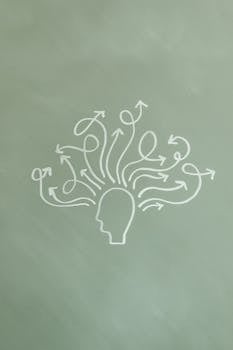
More Mental Health Articles
How ADHD Impacts Memory and Learning Abilities

Attention Deficit Hyperactivity Disorder (ADHD) is widely recognized for its impact on attention and behavioral control, but how much does ADHD affect memory? Understanding this relationship is important for both parents and educators as they support individuals with ADHD in their learning processes. Memory challenges can significantly affect how these individuals acquire, retain, and recall information, which in turn influences educational outcomes.
Does ADHD Affect Memory?
Memory, particularly working memory, is often affected in individuals with ADHD. Working memory is the ability to hold and manipulate information over short periods and is essential for tasks such as reading comprehension and problem-solving. Those with ADHD may experience difficulties in this area, which can affect their academic performance, especially in subjects requiring significant mental effort, like mathematics or complex reading.
Additionally, ADHD can influence long-term memory processes. While individuals with ADHD can often recall information well, if it is not adequately encoded or organized at the time of learning, they may struggle with retrieval later. This challenge can lead to forgetting assignments, losing track of directions, or needing more time to memorize information.
Teaching Strategies to Support Memory in ADHD
Educators and parents can employ certain strategies to aid memory and learning for individuals with ADHD. Developing routine structures and clear, step-by-step instructions can help in managing tasks more effectively.
- Using visual aids and hands-on materials can make abstract concepts more tangible.
- Repetition and regular review of material can reinforce learning.
- Breaking large assignments into smaller, manageable tasks can prevent overwhelming the individual.
Implementing these strategies may improve information retention and recall, potentially leading to better educational outcomes.
The Role of Nutrition and Supplements
Nutrition can also play a role in brain function and memory. While no food or supplement can cure ADHD, certain vitamins and minerals may support cognitive function. Omega-3 fatty acids, vitamin D, and iron are among the nutrients being studied for their potential impact on cognitive abilities. For more detailed information, exploring which vitamins are good for brain fog and memory can provide insights into dietary adjustments that may benefit those with ADHD.
Managing ADHD for Improved Learning
Effective management of ADHD symptoms often involves a combination of behavioral strategies, environmental modifications, and, in some cases, medication. Many individuals find mindfulness and organizational tools useful in enhancing focus and memory.
Professional guidance from educators and healthcare providers is crucial for tailoring approaches to each individual’s unique needs. Medications, when recommended by a healthcare professional, can also play a role in managing attention and impulsivity, indirectly supporting memory and learning capabilities.
Conclusion: Does ADHD Affect Memory in the Long Term?
In conclusion, the answer to “does ADHD affect memory?” is multifaceted. Yes, ADHD can influence both working and long-term memory, posing challenges in educational and daily settings. However, with appropriate strategies and support, individuals with ADHD can mitigate these effects and achieve their learning goals. For more insights and information on health topics, visit the Health Wikipedia page.
- ADHD can affect both working and long-term memory.
- Educational strategies and environmental modifications can assist memory retention.
- Nutrition and supplementation may play supportive roles.
- Professional guidance is essential for personalized ADHD management.
- Combining multiple approaches maximizes learning outcomes.
What is the relationship between ADHD and working memory?
Working memory is often impaired in individuals with ADHD. This type of memory allows us to hold and manipulate information temporarily, which is essential for tasks such as following instructions or solving problems. ADHD-related difficulties in working memory can make these tasks more challenging.
Can lifestyle changes improve memory in individuals with ADHD?
Lifestyle changes, including structured routines, regular exercise, and a balanced diet, can support cognitive functions. These changes, alongside other strategies, may enhance memory in individuals with ADHD.
Are there any medications that help with memory in ADHD?
Some medications prescribed for ADHD may help to improve attention and reduce impulsivity, indirectly benefiting memory. However, these medications should only be used under the guidance of a healthcare professional.
How important is professional guidance in managing ADHD-related memory issues?
Professional guidance is critical in managing ADHD. Educators, therapists, and healthcare providers can offer experienced insight and tailored strategies to help individuals with ADHD overcome memory challenges effectively.
Can supplements play a role in improving memory in those with ADHD?
Certain supplements may support cognitive function, although they do not cure ADHD. Consulting healthcare providers before starting any supplements is crucial to ensure they are appropriate and safe for individual use.
Other Articles You May Find of Interest...
- The Role of Family Involvement in Successful ABA Therapy Plans
- Bipolar 1 vs. Bipolar 2: What Sets Them Apart?
- Transcranial Magnetic Stimulation (TMS)
- Stress Leave Documentation: A Clinician’s Guide to Effective Letters
- Coping with the Aftermath of a Panic Attack Hangover
- Struggling with ADHD? When Should You Seek Professional Help?
- Why Agreeing To Polygraph Test Doesn’t Automatically Signal Honesty














